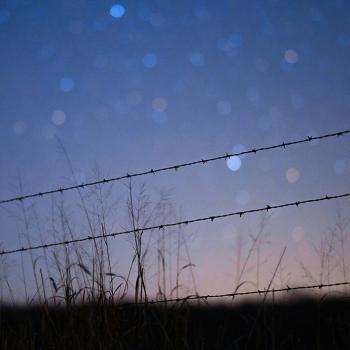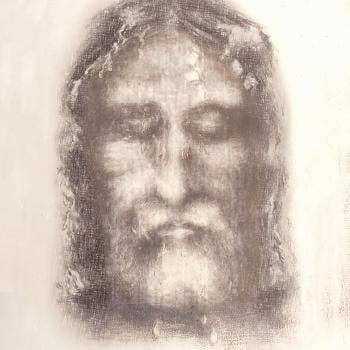Something that will often happen, particularly with reconstructionist-based practitioners, is that further research into a particular deity and their connections leads to "new-to-me" or various other re-discovered deities that are then taken into one's personal pantheon. Or, suddenly, a deity emerges in one's experiences that one hadn't paid attention to previously, or gets one's attention in some fashion or other; whether they are readily identified or if it takes some study to figure out who they are, such encounters often occur that expand one's personal network of divine relationships. I've been very heavily involved with re-founding modern devotion to one major deity, several minor ones, and also in reviving the cultus to a number of heroes as well, so this is a very familiar process for me, and one that is ongoing as this present article is being written (!). This kind of personal pantheonic expansion is extremely common with modern polytheists, and everyone has different ways of handling it. But, it's a rather garden-variety form of further populating one's personal polytheistic pantheon.
There is also the issue of "pop culture entities," as explained in publications by Taylor Ellwood, and egregores that form around new groups and ideas, or through individual and deliberate conscious creation via magic. But those are also relatively "known" factors in this field as well.
What about the less-frequent (but nonetheless possible) reality of totally new deities, though? How does one deal with this issue when it arises? I have yet to see any modern Pagan or polytheist treatment of this matter, nor any conventional training and education on when and why it can occur, nor how to handle it when it does. And, while it might not be that frequent of an occurrence, I suspect that we are going to see a lot more of it in the near future as our community expands and the world continues to change.
This has been a very large part of my own spiritual preoccupations and practices for the last year, since several new deities emerged in my own experience. As a polytheist and a syncretist, I was already in a position to be able to easily deal with their emergence theologically. As a process theologian (which I've discussed briefly on Patheos.com previously), the idea that the gods change as history proceeds is not a problem, and that new gods might emerge as a result of new situations in history is also (in theory) covered by the process theological model. The difficulty with this situation now, however, is that so many modern Pagans and polytheists, many of whom have emerged from other religious affiliations earlier in life, are used to dealing with ostensibly "closed" and "complete" religious systems, where new divine beings do not get added with any regularity. (Catholics, obviously, are an exception, with the recognition of new canonized saints.) Even those modern Pagans and polytheists who have been practicing for a long time, or who have grown up in their respective traditions, do not (to my knowledge) have a general practice or methodology in place for how to deal with newly emergent divinities.
According to ancient Greek and Roman practice, the answer was always to be found in oracular pronouncements. The hero Eunostos of Tanagra, for example, was a human who was wrongfully killed in his community, and whose spirit was terrorizing the community in which this occurred. An envoy was sent on behalf of the community to the Oracle of Delphi, and the Oracle suggested that Eunostos should be reckoned as a hero and given a shrine, which was done, and everything went back to normal, so long as the rules of his cultus and the restrictions upon access to his shrine were observed. I've had several independent confirmations of the divine status of these new deities in my own practice through several oracles I've consulted. (No, this wasn't just a tarot reading or rune-casting; it was an actual oracle who goes and asks questions of a particular deity in a state of oracular trance!) So, that aspect of things seems to be in order . . .
But, I think the major difficulty is one that has been a topic of discussion lately, particularly at Patheos' Pagan Portal: building a temple or shrine. When confirmed by the oracle, Eunostos got his sacred grove; Serapis got his temples in Egypt, and eventually elsewhere as well; Antinous got his holy city and his local societies and associations in the late antique world; and even Glykon got his oracular shrine in Ionopolis. Unfortunately, I don't have the money to build a bricks-and-mortar shrine, even of the 10' x 10' variety, to these new gods at this point. I can narrate their myths easily, and discuss them on my blog, and do rituals to them to my heart's content in my own practices and include others in doing so, and I can encourage others to give these deities form in their own creative arts; but, what else can be done, short of building them a temple? How best does a polytheist who has such experiences as these go about honoring these deities, especially when it is clear that the deities in question have a relevance that is much larger than one's own personal practices?





